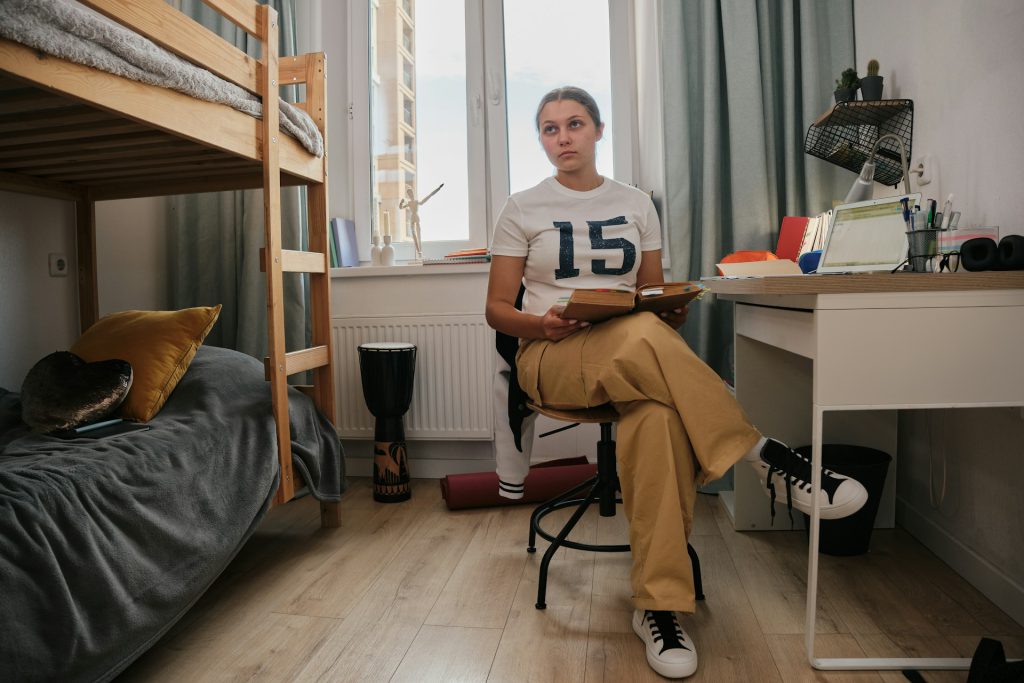Moving into your first off-campus apartment is a major rite of passage. It’s the ultimate taste of freedom and independence, a space that is truly your own. But the search for that perfect place can be an overwhelming and competitive process, especially in a crowded college town. Finding an apartment that is safe, affordable, and well-managed is key to a successful and stress-free school year.
A well-run apartment complex is a professional operation. Behind the scenes, these large properties are often required by state law to operate under the license of a real estate broker. Having a reputable broker of record ensures that the management company is compliant and professional, which translates directly to a better, safer experience for you, the tenant. It’s a sign of a well-managed property.
To find a great place and avoid the common pitfalls, you need a smart game plan. Here’s a step-by-step guide to help you navigate the search for your first off-campus home.
Step 1: Get Your Ducks in a Row (Budget and Roommates)
Before you even start looking at listings, you need to have two things sorted out: your budget and your roommates.
- Know Your Numbers: Sit down and create a realistic monthly budget. This isn’t just the rent; you need to factor in the average cost of utilities (electricity, water, gas), internet, and parking. Knowing your all-in number will help you narrow your search to only the places you can truly afford.
- Choose Roommates Wisely: Have an honest conversation with your potential roommates about living habits, cleaning expectations, and finances. It’s even a good idea to create a simple, written roommate agreement to make sure everyone is on the same page.
Step 2: Location, Location, Commute
The biggest decision you’ll make is where to live. There’s often a trade-off between proximity to campus and cost. An apartment right next to campus will be incredibly convenient, but it will also come with the highest price tag. A place that’s a few miles away might be more affordable, but you’ll need to factor in the time and cost of your commute.
Don’t just look at the distance on a map; investigate the transportation options. Is the apartment on a reliable university bus route? Are there safe bike lanes? If you have a car, what is the parking situation like, both at the apartment and on campus? Many universities have an Off-Campus Housing office or website that provides valuable resources, including transportation maps.
Step 3: Do Your Digital Detective Work
Start your search by browsing online apartment listing sites, but don’t stop there. Once you find a few complexes that look promising, it’s time to do some deeper research. Type the name of the apartment complex into Google and read the reviews from current and former student tenants.
Look for patterns in the comments. Are there consistent complaints about slow maintenance, noisy neighbors, or problems with pests? Or do the reviews consistently praise the friendly management and the well-maintained facilities? These real-world insights are invaluable.
Step 4: Take a Thorough In-Person Tour
Never, ever rent an apartment sight-unseen. You must visit the property in person. During the tour, look beyond the staged model apartment and pay attention to the details of the actual unit you would be renting.
- Check the water pressure in the shower and the sinks.
- Look under the sinks for any signs of past water damage or leaks.
- Open the windows to see how they function and check the condition of the screens.
- Check the cell phone reception in different rooms of the apartment.
- Observe the overall condition of the common areas like hallways, laundry rooms, and the parking lot. This tells you a lot about the quality of the property management.
Step 5: Read Every Word of the Lease
This is the final and most important “adulting” step. The lease is a legally binding contract, and you need to understand exactly what you are signing. Read it from start to finish. If you don’t understand something, ask.
Pay close attention to the details, such as the exact lease start and end dates, the policy on guests and pets, the amount of the security deposit, and the rules for moving out. Reputable legal resources provide excellent plain-English guides to understanding the common clauses in a rental agreement.
Finding your first apartment is a big step. By being organized, thorough, and asking the right questions, you can find a safe and happy home base for your college years.
